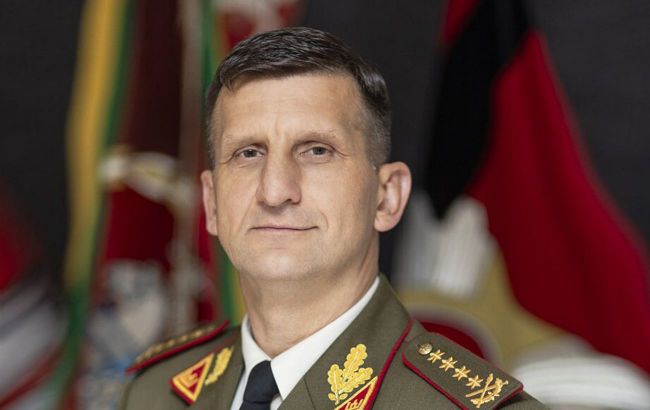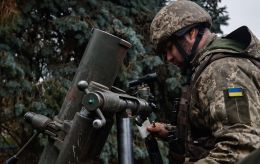Lithuania observes Russian troop withdrawal from Kaliningrad after Ukrainian offensive in Kursk
 Photo: Raimundas Vaikšnoras (kariuomene.lt)
Photo: Raimundas Vaikšnoras (kariuomene.lt)
Due to the successful offensive of the Ukrainian Armed Forces in the Kursk region, a significant reduction in Russian ground forces has been observed in Kaliningrad, according to the Commander of the Lithuanian Army, Raimundas Vaikšnoris.
"As soon as the war in Ukraine began, we noticed that a lot of equipment and part of the personnel had been transferred from Kaliningrad. They had just returned after rotation, and now it is evident that there is a significant reduction, at least of the ground forces," Vaikšnoris said.
However, he added that there is no room for complacency, as the Kremlin continues its attempts to control the Baltic Sea region.
"But let’s not deceive ourselves; their so-called A2/AD system, which provides air cover, remains strong. Nothing has changed there. They are still trying to control the Baltic Sea and this region, so we must remain vigilant and monitor the situation closely," he emphasized.
Ukrainian forces began operations in the Kursk region on August 6. A source in Ukraine's military-political leadership told RBC-Ukraine that the Russian forces received orders from Putin to clear the Kursk region by October 1. However, their task is to do this at all costs, without redeploying forces from key areas where Russia is advancing in Donbas.
The USSR occupied East Prussia and the city of Königsberg during World War II. Germans were deported from the region, and it was incorporated into Russia. Poland and the Baltic States have already renamed this city, restoring its historical name. Poland has officially changed the name of Kaliningrad to Królewiec. In Latvia, the historical name Karalauči or the German version Königsberg will be used. In Lithuania, the name Karaliaučius is used.

